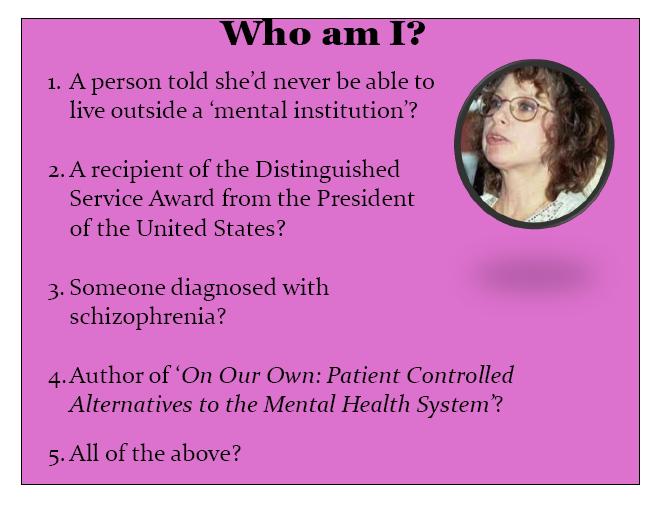ADVOCACY / ADVOCACY WITHIN A TEAM / ADVOCACY-LIKE ACTIVITIES
ADVOCACY
Advocacy as understood by advocacy practitioners is independent of services, partisan, and is “‘on the side’ of people receiving compulsory treatment” , expresses their views without fear or favour.
One would be a little disconcerted if one’s lawyer, one’s legal advocate answered the query ‘How do they plead?’ with ‘Well, Judge, my client says he is innocent, but I actually reckon he’s guilty as sin so I am entering a plea of guilty as charged.’
The legal advocate, whatever they believe privately, acts on instructions. There are other participants in the process who consider the rights of the community, or act as mediator.
True advocacy as the term is used professionally, by IMHA and in the Act, uses this model.
NURSING/TEAM ADVOCACY
The term ‘advocacy’ is used more loosely within health professions where nurses, for instance, are said to have a duty to ‘advocate’ for patients. Here it means presenting a point of view strongly to attempt to shape the clinical consensus.
But in this limited sense, the ‘advocacy’ is all internal to the team.
The model is to air out different opinions and perspectives in a private clinical meeting and present a united front in interaction with consumers or family.
ADVOCACY LIKE ACTIVITIES
Though the formal LLEW Scope of practice document specifically includes advocacy as part of GMHWS LLEW functions, as you will see from the formal definition above, an employee of the service cannot safely be a true advocate, truly independent, “on the side” of the consumer.
A LLEW can, sometimes, support a consumer up to a particular point – making a complaint internally for instance – but if this is unsuccessful, LLEW may be directed to refrain from taking further steps, offering options, and perhaps assisting with, a complaint to the OCP or MHWC or higher.
I am calling this limited assistance ‘advocacy-like activity’ and agree it has a place, as long as both LLEW and consumer do not mistake it for Advocacy, ignore its limits or ignore its risks, and as long as it does not replace access to independent advocacy.
Expressing or supporting a consumer to express disagreement with an authority figure is fraught with risk, to the LLEW’s relationships in the team, vital to our work, and risks to the LLEW themselves and their recovery.
But refraining from supporting those views, feeling disloyal to consumers, is also a risk to the LLEW’s recovery and a common reason for problems in LLEW retention and burnout.
Managing those risks involves specific advanced skills in negotiation and communication to disagree without offending, clear and early communication to consumers of the limitations of LLEW, and an extensive knowledge of possible independent advocacy referrals.
There is the world of difference, emotionally and morally between ‘I can’t help you any more. Goodbye,” and “I can’t help you any more, but these agencies can.”
Using the same word for three different practices risks misunderstanding and conflict.

